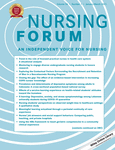E-learning: Depression, anxiety, and stress symptomatology among Lebanese university students during COVID-19 quarantine
Abstract
Background
E-learning has been adopted internationally as the alternative teaching or learning strategy during the coronavirus disease 2019 (COVID-19) quarantine to fill the academic gap that has been created by the existing reality of the pandemic due to nationwide closures.
Aim
This study aims at evaluating the prevalence of depression, anxiety, and stress symptomatology among Lebanese University Students during the COVID-19 Quarantine.
Methodology
A quantitative cross sectional research design, where 520 undergraduate university students were surveyed regarding their satisfaction with e-learning and the prevalence of depression, anxiety, and stress symptomatology using depression, anxiety, and stress scale-21 elements.
Results
Learning through online platforms have given rise to depression and anxiety disorders among undergraduate university students, where there was a significant correlation between student satisfaction and prevalence of depression, anxiety, and stress.
Conclusion
The sudden shift to exclusive e-learning methods of instruction have produced anxiety and depression symptoms among a significant portion of the students due to the stressful load of work required.




